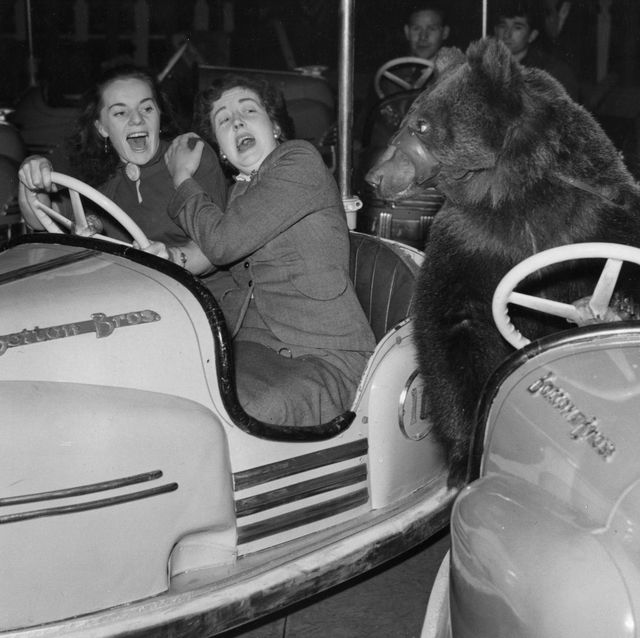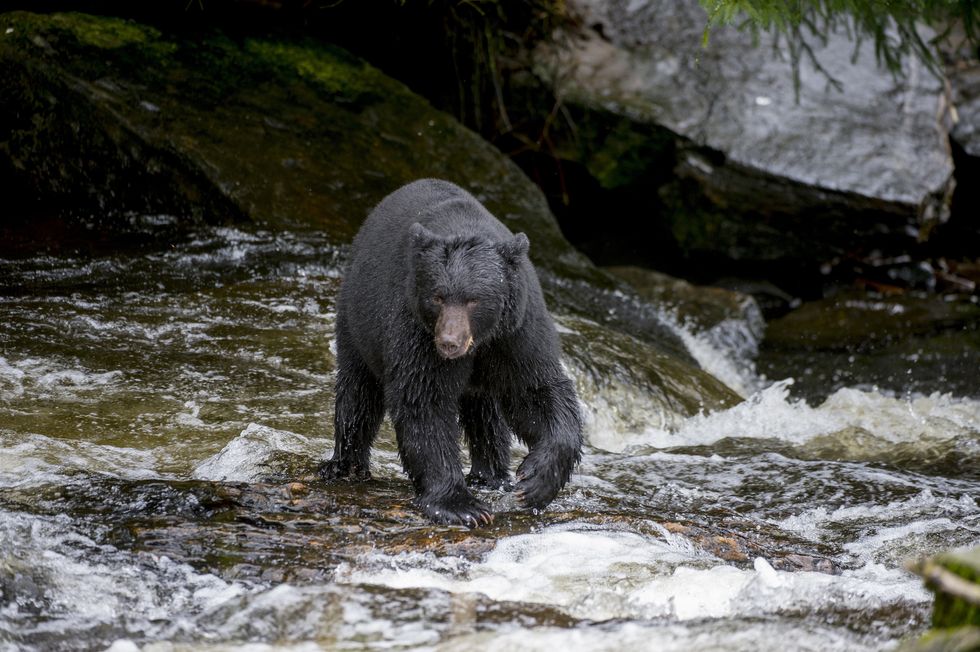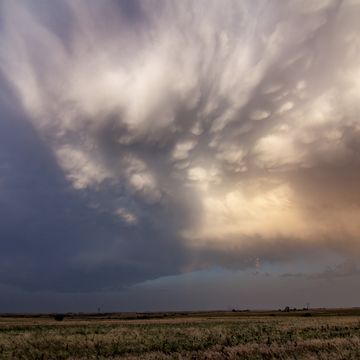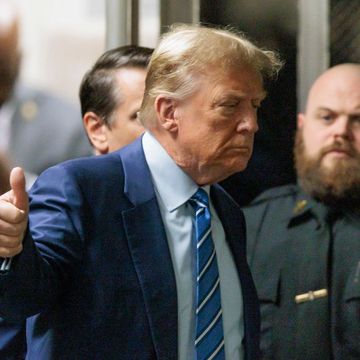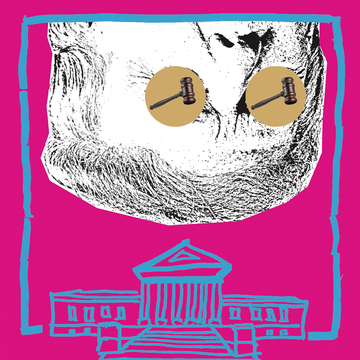According to The New Republic, in a small place in New Hampshire, which is rife with small places, the forces of libertarianism clashed head-on with the primal forces of nature, and the primal forces of nature kicked everybody's ass with the well-trained shock troops of the primal forces of nature: bears.
The black bears in Grafton were not like other black bears. Singularly “bold,” they started hanging out in yards and on patios in broad daylight. Most bears avoid loud noises; these casually ignored the efforts of Graftonites to run them off. Chickens and sheep began to disappear at alarming rates. Household pets went missing, too. One Graftonite was playing with her kittens on her lawn when a bear bounded out of the woods, grabbed two of them, and scarfed them down. Soon enough, the bears were hanging out on porches and trying to enter homes.
It seems that Grafton, New Hampshire had become a kind of magnet for libertarian crazy people. (This is chronicled, TNR reports, in a new book by local journalist Matthew Hongoltz-Hetling.)
These people had found one another largely over the internet, posting manifestos and engaging in utopian daydreaming on online message boards. While their various platforms and bugbears were inevitably idiosyncratic, certain beliefs united them: that the radical freedom of markets and the marketplace of ideas was an unalloyed good; that “statism” in the form of government interference (above all, taxes) was irredeemably bad. Left alone, they believed, free individuals would thrive and self-regulate, thanks to the sheer force of “logic,” “reason,” and efficiency. For inspirations, they drew upon precedents from fiction (Ayn Rand loomed large) as well as from real life, most notably a series of micro-nation projects ventured in the Pacific and Caribbean during the 1970s and 1980s.
Well, yeah, whatever.
And so the Free Town Project began. The libertarians expected to be greeted as liberators, but from the first town meeting, they faced the inconvenient reality that many of Grafton’s presumably freedom-loving citizens saw them as outsiders first, and compatriots second—if at all. Tensions flared further when a little Googling revealed what “freedom” entailed for some of the new colonists. One of the original masterminds of the plan, a certain Larry Pendarvis, had written of his intention to create a space honoring the freedom to “traffic organs, the right to hold duels, and the God-given, underappreciated right to organize so-called bum fights.” He had also bemoaned the persecution of the “victimless crime” that is “consensual cannibalism.”
Good god.
Hongoltz-Hetling discovered all kinds of strange human fauna in Grafton and, to the surprise of absolutely nobody, the Invisible Hand did not fashion a free-market libertarian utopia in the woods of New Hampshire. Instead, as Hongoltz-Hetling puts it, the town "went feral."
They slashed the town’s already tiny yearly budget of $1 million by 30 percent, obliged the town to fight legal test case after test case, and staged absurd, standoffish encounters with the sheriff to rack up YouTube hits. Grafton was a poor town to begin with, but with tax revenue dropping even as its population expanded, things got steadily worse. Potholes multiplied, domestic disputes proliferated, violent crime spiked, and town workers started going without heat.
Which brings us back to the bears, who looked at the libertarian experiment and thought, "Lunch." And that is not a joke, either.
These are animals that can scent food seven times farther than a trained bloodhound, that can flip 300-pound stones with ease, and that can, when necessary, run in bursts of speed rivaling a deer’s. When the bears finally start mauling humans—attacking two women in their homes—Hongoltz-Hetling’s relation of the scenes is nightmarish. “If you look at their eyes, you understand,” one survivor tells him, “that they are completely alien to us.”
Nobody's really sure why the bears went into business for themselves, although the libertarian philosophy of trash bins seems to be involved. But one thing on which everybody agrees is that there is no Randian solution to be found when the bears come.
Is it the lack of zoning, the resulting incursion into bear habitats, and the reluctance of Graftonites to pay for, let alone mandate, bear-proof garbage bins? Might the bears be deranged somehow, perhaps even disinhibited and emboldened by toxoplasmosis infections, picked up from eating trash and pet waste from said unsecured bins? There can be no definitive answer to these questions, but one thing is clear: The libertarian social experiment underway in Grafton was uniquely incapable of dealing with the problem. “Free Towners were finding that the situations that had been so easy to problem-solve in the abstract medium of message boards were difficult to resolve in person.”
Not that some people didn't try.
One woman, who prudently chose to remain anonymous save for the sobriquet “Doughnut Lady,” revealed to Hongoltz-Hetling that she had taken to welcoming bears on her property for regular feasts of grain topped with sugared doughnuts. If those same bears showed up on someone else’s lawn expecting similar treatment, that wasn’t her problem.
Perfect. Absolutely perfect.

Charles P Pierce is the author of four books, most recently Idiot America, and has been a working journalist since 1976. He lives near Boston and has three children.
